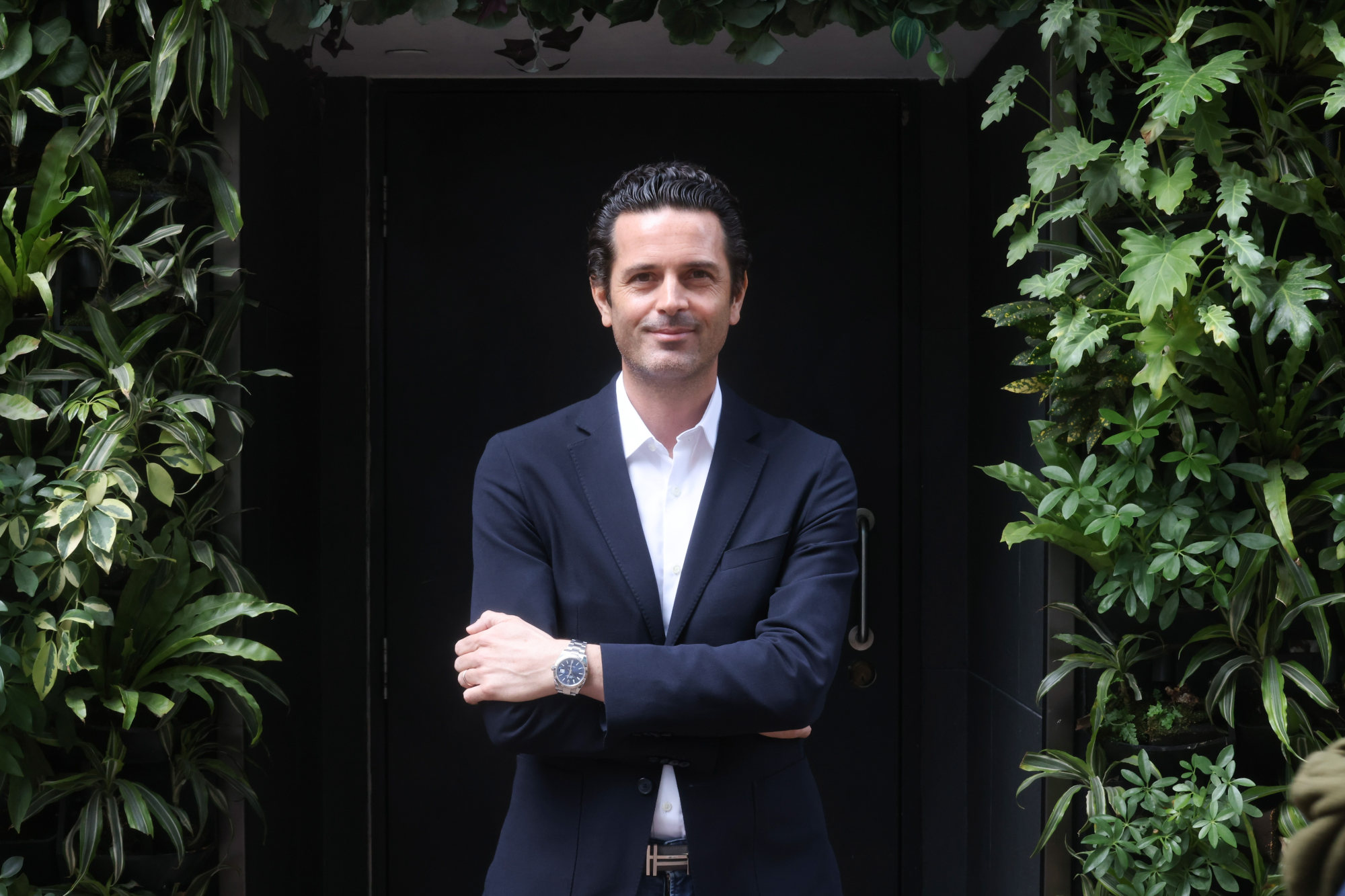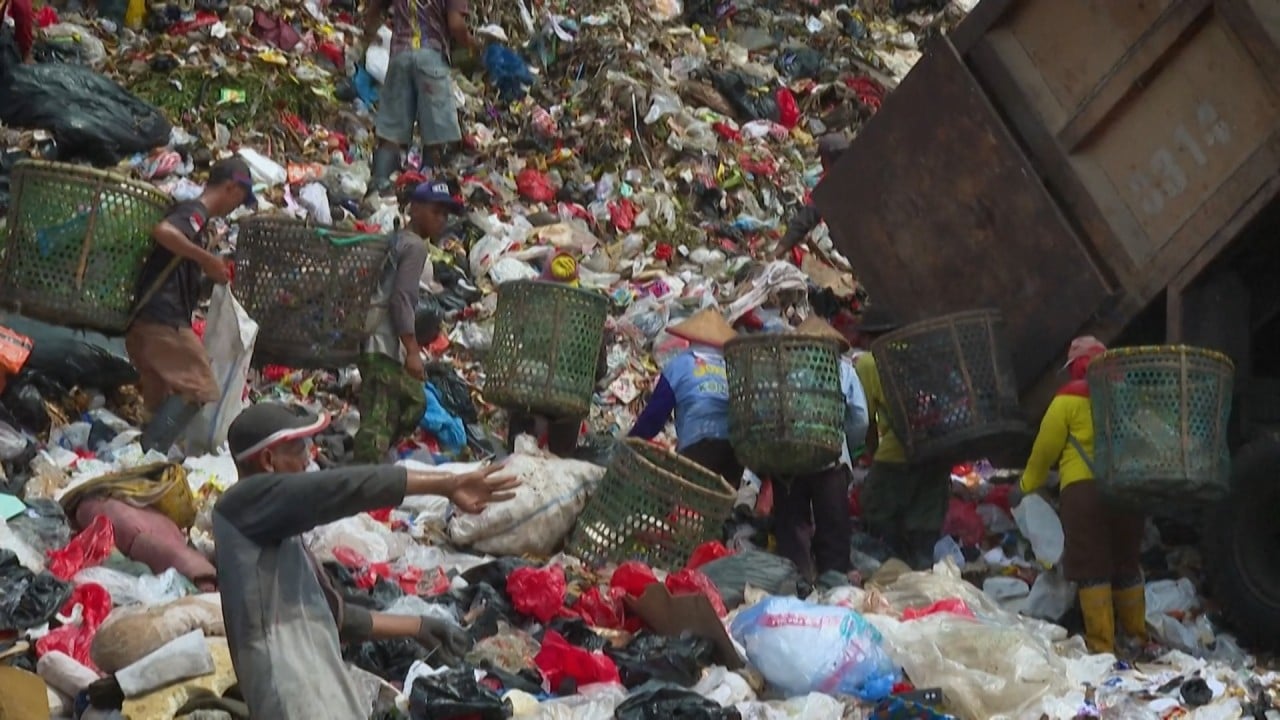
Hong Kong needs new solutions, legislation to rescue its money-losing plastic bottles recycling industry, expert says
- High operating costs and inefficient logistics are undermining the viability of plastic waste recycling efforts, businessman says
- Hong Kong is aiming to make it mandatory for manufacturers, distributors and consumers to share the costs of recycling plastic waste
High operating costs and inefficient logistics are factors undermining the financial viability of the city’s plastic waste recycling drive, said Max Craipeau, founder and CEO of Hong Kong-based Greencore Resources and chairman of the tyres and rubber committee of Bureau of International Recycling.
“Hong Kong’s high population density is an advantage when it comes to logistics,” he said in an interview. “However, salaries are high and processes are inefficient, which kills the economics of the existing plastic bottles collection and recycling system.”
If the sorting and shredding can be done at the collection points, it would greatly enhance the financial viability, said Craipeau, a French entrepreneur with nearly two decades trading recycling machine parts and materials in the region, including establishing a plastics recycling plant in Indonesia.

Craipeau said Greencore is in discussions with beverage bottlers in Hong Kong, Philippines, Indonesia, Singapore, Poland, the US and Europe on forming partnerships. They include co-financing collection, sorting and shredding machines, as well as long term offtake contracts on recycled PET pellets.
In Vietnam, his company has developed and deployed 46 sensor-laden “reverse vending machines” for collecting used plastic bottles in Vietnam. The machines are capable of rejecting non-recyclable bottles that contain polyvinyl chloride (PVC), while sorting and shredding suitable ones.

They can reduce the number of recycling steps to four from 12, Craipeau said, and slash the logistics work required by 90 per cent. In comparison, existing conventional machines get filled up quickly and need to be emptied and transported frequently to another recycling site, he added.
Greencore ventured into Indonesia in 2018 by establishing waste plastic collection points that face the highest “leakage” into the ocean. The company trains pickers to collect and sort the most recyclable materials and sell them to the company for processing.
The company has built a facility capable of processing 8,000 tonnes of plastic waste annually, which turns waste collected in Indonesia into pellets and later sold mostly to buyers in China. Its customers include global garment, electronic products, furniture and luggage producers seeking to increase their recycled content.
The World Bank in January agreed to fund two projects, including Craipeau’s Indonesian venture, using proceeds from the sale of a US$100 million bond. Investors agreed to swap US$14 million of coupon payments for up to US$20 million of payments linked to third-party verified credits generated for plastic and carbon emissions reduction.
Asia is responsible for over 80 per cent of plastics leakages into marine environments, according to a 2021 World Bank report. Better legislation would help recycling efforts in the region by making it mandatory for producers to share the cost and responsibility, he added.
Vietnam was chosen as the first market for deployment since it was the first nation in Southeast Asia to implement such a law. Since January 1, producers of consumer goods must recycle at least 22 per cent of their packaging and provide evidence to support compliance, or face penalties.
Singapore will launch a mandatory deposit refund scheme for bottled and canned drinks in April next year. A S$0.10 (US$0.07) deposit will be added to the price of the beverage and will be refunded when the container is returned, according to the government.
Hong Kong is moving in the same direction. The government aims to enact legislation later this year, introducing producer responsibility schemes (PRS) for various products including plastic drink containers from 2025. It aims to have manufacturers, distributors and consumers share the costs for collection, processing, recycling and disposal.
“The PRS is the most advanced system, they are much better than the system in Vietnam [which put the responsibility on the producers],” Craipeau said. “The best system is to incentivise the consumers to return the bottles, because they don’t want to lose the deposit.” he said, citing Latvia as an example, where bottle return rates doubled to over 80 per cent a year after implementation.


